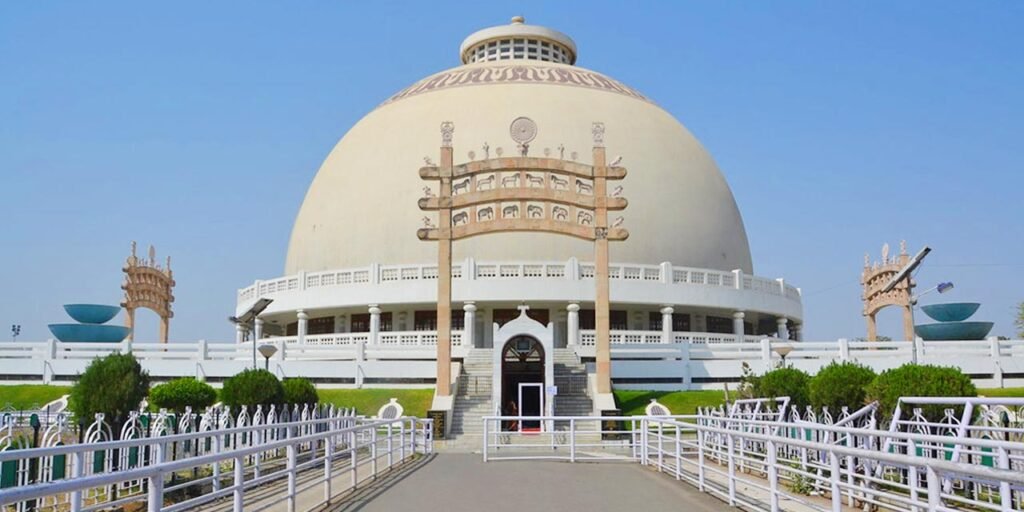Nagpur is a city full of movement. From its busy markets to its cricket grounds and factories, life here is always on the go. For people who have lost a leg or part of it, keeping up with this pace can feel difficult. Simple things like walking to the shop, catching a bus, or joining a game with friends suddenly become challenges.
Prosthetics in Nagpur are changing this. Local centers are offering options that go beyond basic walking. Sports feet are helping athletes and fitness lovers get back on the field. Everyday mobility prosthetics are giving people the comfort to walk, climb stairs, and live active daily lives without fear.
What makes this even more powerful is that these solutions are now easier to find, more affordable, and better suited for Indian lifestyles. Choosing the right prosthetic foot in Nagpur is not only about movement—it is about freedom, confidence, and enjoying life again.
Nagpur Prosthetics Near Me: Sports Feet and Everyday Mobility Picks
Why Everyday Mobility Matters
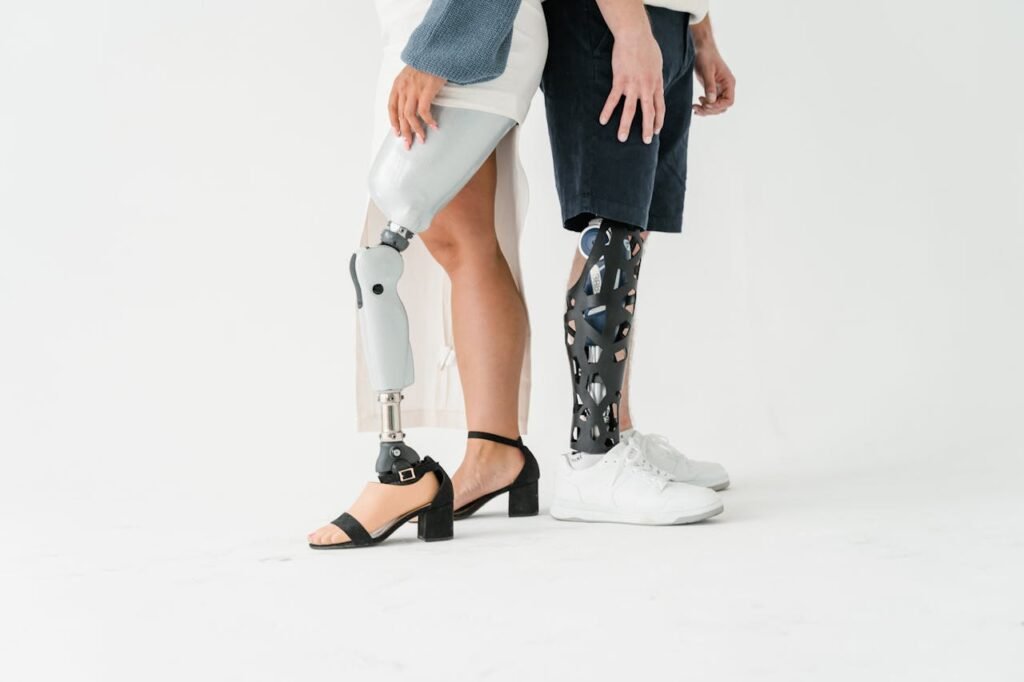
Walking may seem simple, but for someone with limb loss, it is the biggest dream. In Nagpur, where distances can be long and public transport is busy, being able to walk freely is a gift. Everyday mobility prosthetics are designed for this very purpose.
These prosthetics focus on balance, comfort, and durability. They are not built for speed or heavy sports but for daily life—shopping in Sitabuldi market, visiting a temple, or simply moving around at home without fear of falling.
The Features of Everyday Mobility Feet
Everyday mobility feet usually come with a simple but strong design. They are light enough to wear all day yet sturdy enough to handle Indian roads and crowded areas. Many are made with carbon fiber or flexible plastics that absorb shock and make walking smoother.
The goal is not just walking in straight lines but managing turns, stairs, uneven ground, and daily obstacles. In Nagpur, where roads may not always be flat and smooth, this adaptability is key.
How Prosthetic Centers in Nagpur Approach Mobility
Prosthetic centers in Nagpur take time to understand the user’s routine. A retired teacher has different needs compared to a young professional or a homemaker. By asking detailed questions about daily activities, specialists recommend the right kind of foot.
They also conduct walking trials inside the center. Patients practice walking short distances, standing for longer periods, and even climbing a small step. This ensures the prosthetic fits not just physically but also practically.
Everyday Challenges Addressed by Prosthetics
Navigating Indian Roads and Public Transport
Walking in Nagpur is not always simple. Roads are often uneven, and buses or autos require quick steps. Everyday prosthetics are built to absorb these shocks and reduce the risk of imbalance.
For people who rely on public transport, prosthetic centers recommend feet with better flexibility. This allows smoother entry into buses or trains and prevents strain during sudden movements.
Managing Household Activities
At home, daily chores like cooking, cleaning, or carrying groceries demand stability. Everyday prosthetics provide that extra balance so that patients can move safely in kitchens, bathrooms, and small corridors.
Family members often notice the change first. Instead of offering constant support, they see their loved ones moving independently again. This not only eases the workload but also restores confidence in the patient.
Returning to Work
For many, mobility is linked directly to livelihood. A shopkeeper in Sitabuldi, a clerk in a government office, or a worker in a factory cannot depend on crutches for long. Everyday prosthetics allow them to return to work with dignity.
This return is not only financial but also emotional. Being able to earn again reduces the feeling of being a burden and brings back self-respect.
Training for Everyday Prosthetic Use
Step-by-Step Learning
When someone first receives a prosthetic, walking is not instant. It begins with short, guided steps. In Nagpur centers, patients are first taught how to stand and balance safely. Only then do they move on to walking.
Over time, the training becomes more advanced. Patients practice turning, carrying small items, and climbing steps. By the end of training, they are ready to use the prosthetic in real life.
Role of Rehabilitation Specialists
Rehabilitation specialists play a major role in this process. They guide patients with exercises that strengthen muscles and improve posture. This makes walking more natural and prevents long-term strain.
They also provide motivation. Many patients feel discouraged in the beginning. Having someone to cheer them on makes a big difference.
Involving Families
Families in Nagpur are encouraged to join training sessions. They learn how to support without interfering, when to step in, and when to allow independence. This involvement creates a supportive environment at home, making the transition smoother.
Everyday Mobility Stories from Nagpur
A Homemaker’s Return to Freedom
Sushma, a homemaker in Dharampeth, lost her leg in a road accident. For months, she depended on her daughter for every small task. After being fitted with an everyday prosthetic, she slowly regained her independence.
Today, she cooks meals, visits the local market, and even attends community gatherings on her own. Her story is an example of how mobility brings dignity back into life.
A Government Clerk’s Journey
Ramesh, a government clerk, feared he would lose his job after an amputation. His work required long hours of standing and walking between departments. With an everyday prosthetic fitted in Nagpur, he not only returned to work but also managed his duties without extra leave.
He says his prosthetic is not just a device but a tool that saved his career.
A Student’s Experience
Priya, a college student, wanted to continue her studies without interruption. Using an everyday prosthetic, she now moves around her campus, attends classes, and joins friends without hesitation.
Her parents noticed the biggest change: she stopped asking for help every few minutes. That independence gave her back her confidence and joy.
Why Everyday Prosthetics Are Growing in Demand in Nagpur
Rising Awareness
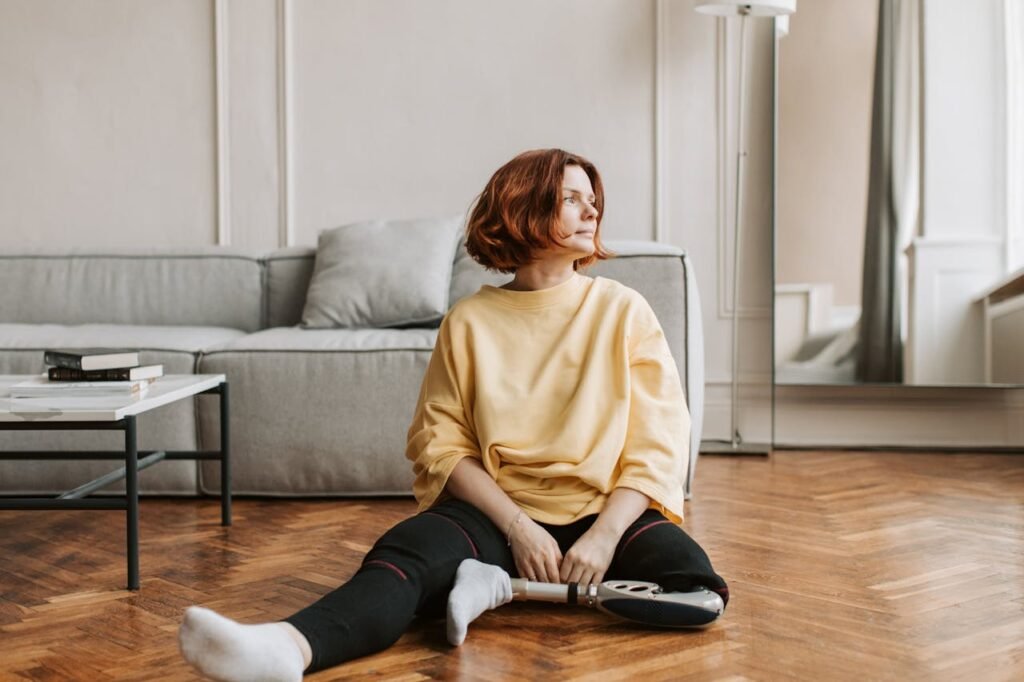
Earlier, many people in Nagpur were not aware that affordable prosthetics even existed. They assumed these devices were only for the wealthy. Awareness campaigns and camps are changing this perception.
More families now know that everyday prosthetics are available at reasonable prices, and this has increased adoption across the city.
Affordable Options
Local manufacturing has played a huge role in making prosthetics affordable. With fewer imported parts and more Indian innovations, the cost has come down. Combined with EMI options, prosthetics are now within reach for middle-class families in Nagpur.
Accessible Centers
Nagpur now has multiple prosthetic centers, reducing the need for patients to travel to metros. This accessibility means quicker fittings, faster repairs, and better follow-up care.
Patients also feel more comfortable when services are close to home. They know help is available without long journeys or waiting lists.
Sports Prosthetics in Nagpur
Why Sports Feet Are Special
Sports prosthetics are designed differently from everyday ones. While everyday feet focus on balance and comfort, sports feet focus on energy, speed, and performance. They are built to absorb shock, return energy with each step, and handle high levels of activity.
In Nagpur, more people are now exploring sports prosthetics. From young athletes training in schools to adults who enjoy running or cycling, demand is growing. Sports feet give them the ability to move with power and confidence, even after limb loss.
The Technology Behind Sports Feet
Sports prosthetics often use carbon fiber blades shaped like a curve. This design stores energy when the foot presses down and releases it as the user pushes forward. The result is a spring-like action that mimics natural running.
For team sports, some models are designed to improve side-to-side movement. Others are made for endurance, helping people walk or hike longer distances without strain. These variations mean athletes in Nagpur can choose a foot that matches their sport.
Training Athletes for Sports Prosthetics
Wearing a sports prosthetic is not enough. Training is essential to unlock its full potential. In Nagpur, prosthetic centers often collaborate with physiotherapists and sports coaches.
Patients learn how to run on tracks, balance during turns, and control their energy use. Training also prevents injuries by teaching proper posture and muscle coordination. With guidance, athletes can slowly return to their favorite sports with confidence.
Everyday People Using Sports Feet
Fitness Enthusiasts
Not everyone who uses sports feet is a professional athlete. Many people in Nagpur simply want to stay fit. Morning walkers, joggers, and yoga enthusiasts are choosing sports prosthetics because they offer more flexibility and energy return.
For these users, sports feet are not about competition but about living an active lifestyle. They provide the freedom to enjoy parks, fitness clubs, and community sports without holding back.
Students and Young Adults
For students, sports prosthetics mean participation. Many schools and colleges in Nagpur have sports programs where running, jumping, and games are common. A prosthetic that supports these activities allows students to feel included and confident.
Young adults also use sports feet for cycling, trekking, or even dance. These activities are more than hobbies—they are a way to express freedom and connect socially.
Professionals Balancing Sports and Work
Some professionals in Nagpur use everyday prosthetics for work and sports prosthetics for fitness. This dual approach helps them balance both worlds. For example, an office worker may wear a mobility prosthetic during the day and switch to a sports foot in the evening for running practice.
This flexibility is making sports prosthetics more popular, as people realize they can enjoy both work and play without compromise.
The Emotional Impact of Sports Prosthetics
Breaking Barriers
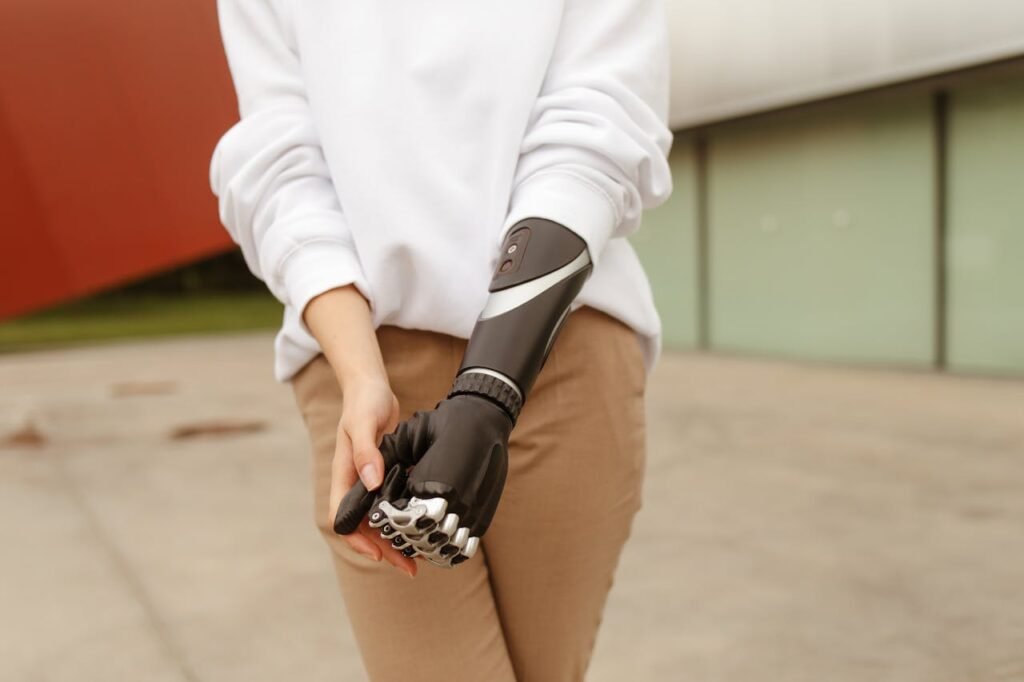
For many patients, losing a limb feels like losing a part of their identity. Sports prosthetics help break this barrier. By returning to the track, field, or gym, they prove to themselves that limb loss is not the end of movement.
This confidence often spreads into other areas of life. A person who can run again often feels stronger in facing work, studies, and relationships.
Inspiring Others
Sports prosthetics also inspire communities. When someone in Nagpur runs with a sports foot, they show others what is possible. Children, families, and neighbors witness resilience in action.
This inspiration encourages more people with limb differences to seek prosthetics instead of hiding their challenges. It also builds awareness among the general public, reducing stigma and increasing acceptance.
Restoring Dreams
For athletes who lost their limbs, sports prosthetics restore old dreams. A football player can return to practice. A runner can enter competitions. A fitness lover can go back to their morning routine.
These restored dreams are powerful. They remind patients that while life may have changed, their goals are still within reach.
Sports Prosthetics in Nagpur’s Growing Healthcare Scene
Availability of Sports Feet
Nagpur’s prosthetic centers now offer a variety of sports prosthetic models. Some are locally made, while others are imported. Local models are more affordable, while imported ones often provide advanced features.
Patients are given options to test these during trial days. This helps them decide whether they prefer lightweight designs, higher energy return, or more stability.
Supportive Rehabilitation Programs
Rehabilitation for sports prosthetics in Nagpur goes beyond walking practice. It includes sprint training, balance exercises, and endurance building. This ensures that the prosthetic works not only in clinics but also in real sports environments.
Special programs are also created for young athletes, helping them balance prosthetic use with school and sports practice.
The Role of Local Sports Communities
Sports clubs in Nagpur are slowly becoming more open to athletes with prosthetics. Some have partnered with prosthetic centers to support training. Coaches are also learning how to adapt drills and provide equal opportunities.
This growing inclusion means that more athletes with prosthetics can participate in local tournaments, marathons, and community events.
Real-Life Sports Stories from Nagpur
A Runner’s Comeback
Sunil, a runner from Nagpur, lost his leg in an accident. He thought his running days were over. With the help of a sports foot fitted at a local center, he returned to the track within a year.
Now, he not only runs daily but also participates in city marathons. His comeback story inspires many young athletes in the region.
A Schoolgirl’s Dream
Ankita, a schoolgirl, loved playing kho-kho and kabaddi. After an amputation, she stayed away from games for months. When she was fitted with a sports prosthetic, she regained the courage to join her team again.
Her teachers noticed her energy returning, and her classmates cheered her comeback. For Ankita, the prosthetic was not just about movement—it was about belonging again.
A Professional’s Fitness Journey
Rahul, a bank employee, missed his evening jogs after limb loss. Determined to return, he opted for a sports prosthetic alongside his everyday one. With consistent training, he regained stamina and now enjoys daily runs at Ambazari Lake.
He says jogging clears his mind after work, and without a sports foot, he would have lost that joy.
Choosing the Right Prosthetic in Nagpur
Understanding Personal Needs
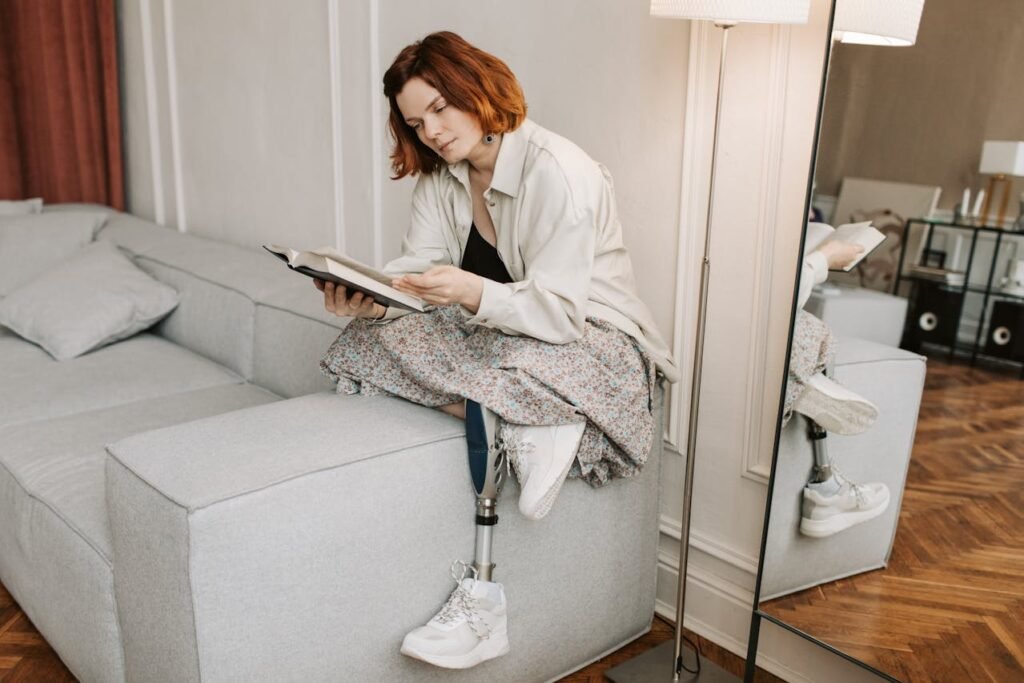
Every person in Nagpur who walks into a prosthetic center comes with a different story. A student may want to move quickly on campus. A shopkeeper may need to stand for long hours. A sportsperson may dream of running again.
The right prosthetic depends entirely on lifestyle. Prosthetists in Nagpur begin by asking about daily routines, hobbies, and work. This helps them match the right type of foot to the person’s actual needs.
Balancing Comfort and Performance
Some patients only need basic comfort to walk safely at home and in the neighborhood. Others want performance that supports both everyday life and sports. In these cases, prosthetists suggest hybrid options or multiple devices.
The decision is not about choosing the most advanced model but the one that fits life naturally. Comfort, durability, and personal goals are always placed above trends.
Trial Sessions for Better Choices
Trial days in Nagpur are a big help in making the right decision. Patients try different prosthetics for a few days, testing them in real situations like walking, climbing stairs, or jogging lightly.
These trials remove doubts and help patients feel confident about their choice. Families are also encouraged to watch, so they understand how the prosthetic works in daily life.
Combining Sports Feet with Everyday Prosthetics
Why Two Prosthetics Can Be Useful
Many people in Nagpur now choose to use two prosthetics—one for daily use and one for sports or fitness. This approach gives flexibility. The everyday prosthetic provides comfort for work, chores, and casual outings, while the sports prosthetic offers energy and speed for training.
Switching between them is simple and ensures that no single device is overused or worn out too quickly.
Stories of Dual Use
Arjun, an IT professional in Nagpur, uses a mobility foot during office hours and a sports foot for his evening gym sessions. This allows him to balance his professional and fitness life.
Similarly, Meena, a homemaker who loves yoga, uses her everyday prosthetic for chores but switches to a lighter sports foot during her yoga practice for better flexibility.
These stories show how patients are customizing their lives with dual prosthetics, enjoying both independence and activity.
Prosthetists’ Guidance
Prosthetists in Nagpur often recommend dual-use strategies for active individuals. They guide patients on when to use each device, how to maintain them, and how to train effectively with both.
This guidance ensures that patients get the best out of their prosthetics without unnecessary strain or damage.
Follow-Up Care in Nagpur
Why Follow-Ups Are Critical
Prosthetic fitting does not end when the device is handed over. Bodies change, muscles adapt, and wear-and-tear happens. Follow-ups in Nagpur make sure the prosthetic continues to fit well and work properly over time.
Without follow-ups, even the best prosthetic may cause discomfort or be abandoned. Regular reviews prevent this and keep the journey smooth.
Structured Follow-Up Plans
Most centers in Nagpur schedule the first follow-up within two weeks. After that, monthly or quarterly visits are recommended depending on the patient’s needs.
These check-ins focus on fit, skin comfort, alignment, and daily usability. If issues arise, quick adjustments are made to prevent bigger problems.
Emotional Support in Follow-Ups
Follow-ups also act as emotional checkpoints. Patients share their struggles, small victories, and doubts. Prosthetists and counselors listen, encourage, and provide solutions.
This emotional bond ensures that patients feel supported, not abandoned, long after the initial fitting.
Affordability and Accessibility in Nagpur
Making Prosthetics Reachable
Affordability is one of the biggest concerns for families in Nagpur. Even when they know prosthetics exist, many assume the price will be too high. Local manufacturing and government schemes are helping close this gap.
Everyday prosthetics are now available at lower costs, and sports prosthetics, though pricier, can be accessed through EMI options. This means families no longer need to make impossible financial sacrifices.
EMI Options for Families
Most prosthetic centers in Nagpur now provide EMI facilities. Patients can pay for their devices in small, manageable monthly amounts. This removes the fear of a heavy upfront cost and allows quicker access.
For working professionals and small business owners, this flexibility makes a life-changing difference. Instead of delaying for years, they can start using the prosthetic immediately and repay comfortably over time.
The Role of Awareness
Awareness is as important as affordability. Many people in Nagpur still do not know that prosthetics can be accessed through EMIs or insurance. Prosthetic centers are running awareness programs in hospitals, schools, and community halls to spread this knowledge.
As awareness grows, more families are stepping forward, realizing that solutions are within their reach.
Nagpur as a Center for Prosthetic Innovation
Regional Importance
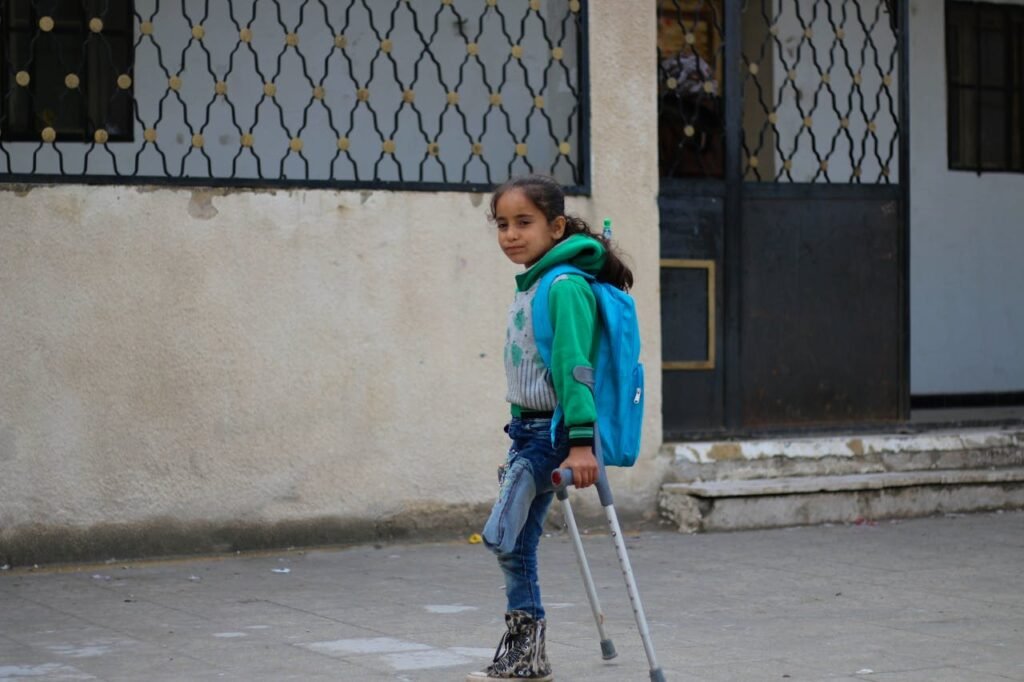
Nagpur is not just serving its own residents. People from surrounding districts like Wardha, Bhandara, and Gondia also come here for prosthetic services. The city’s central location makes it a healthcare hub for the Vidarbha region.
This regional role is growing stronger as prosthetic centers expand and more specialized care becomes available.
Integration of Technology
Nagpur’s prosthetic providers are adopting advanced technologies like bionic feet and sensor-based prosthetics. These devices offer better control, comfort, and adaptability.
Over time, such innovations will make the city a leader in prosthetic care in central India, attracting even more patients from rural and urban areas.
Building a Community of Users
Beyond technology, Nagpur is building a community of prosthetic users. Camps, support groups, and peer networks are helping people share experiences. Patients inspire each other by showing how they balance everyday mobility with sports and active living.
This sense of belonging makes the journey less lonely and more motivating.
Conclusion
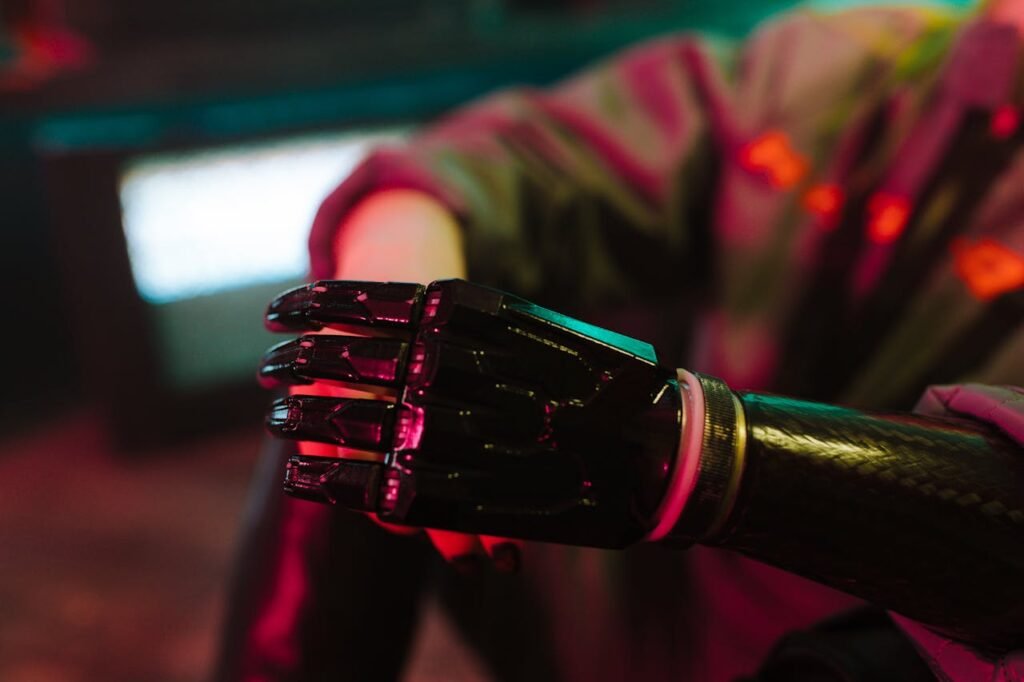
Nagpur is fast becoming a city of possibilities for people with limb differences. Prosthetic care here is not only about replacing what was lost but about giving back freedom, confidence, and dignity. Everyday mobility prosthetics are helping people walk to markets, return to offices, and move around their homes with ease. Sports feet are opening doors to running, fitness, and active living, proving that life after limb loss can be just as full and energetic.
What makes Nagpur stand out is the way its prosthetic centers combine practicality with compassion. Trial days give people the chance to test devices before deciding. EMI plans ensure that costs never block the path to independence. Follow-up care provides ongoing support, so no one feels abandoned after fitting. Together, these steps create a circle of care that is both human and effective.
The stories coming from Nagpur are powerful. Homemakers managing their kitchens again, students walking confidently across campuses, athletes running marathons, and professionals balancing careers with fitness—all of them show what is possible when technology and empathy come together. Each story is a reminder that prosthetics are not simply machines but companions in rebuilding lives.
Nagpur’s role as a regional hub also means that people from nearby towns and villages are benefiting. With growing awareness and better accessibility, more families are realizing that prosthetics are within their reach. Local manufacturing, government support, and innovative providers are making sure that cost, distance, and fear no longer stand in the way.
The future of prosthetics in Nagpur looks bright. As technology advances and communities grow stronger, more people will step into new lives filled with independence and activity. For anyone in Nagpur searching for “prosthetics near me,” the answer is clear—solutions are here, designed for both everyday living and active sports.
Nagpur is not just fitting prosthetics. It is fitting people back into their dreams, their work, and their joy. And with every new step taken on a prosthetic foot, the city proves that life can move forward with strength and pride.



